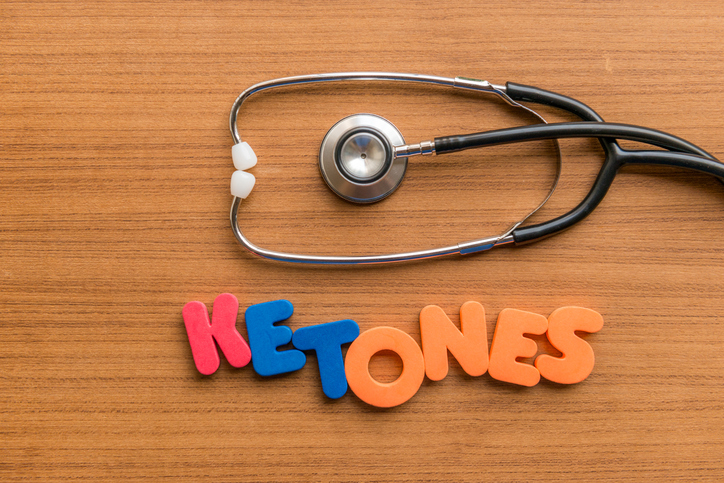4 Things Every Person With Diabetes Needs To Know About Ketones
January 22 2018Here’s what ketones are, and why keeping tabs on them could save your life.

If you have diabetes, you’ve surely heard about the importance of checking your blood sugar regularly. But you should also pay attention to ketones, especially if you have type 1 diabetes or have type 2 and use insulin. Here’s what you need to know to stay safe.
Ketones are fuel that comes from fat.
Ketogenetic (aka keto) diets—which involve eating lots of fat, a good amount of protein, and very few carbs—are all the rage because they force the body to burn stored fat for fuel. But someone who has diabetes has to be careful about switching into this alternate fuel-burning process, called ketosis, because it may mean that you don’t have enough insulin in your system.
If you don’t have enough insulin, you can’t use glucose (sugar) for energy, says Dr Ehsan Ali. Again, that might not sound like a bad thing. Who wouldn’t want to burn off stored fat? The problem is that if fat gets broken down while there’s a lack of insulin (as there is in people with type 1 diabetes and some who have type 2), the liver starts making more and more ketones, and those can start to build up in the bloodstream.
They can make you sick.
Ketones aren’t always a problem, even for people with diabetes. If you’re trying to lose weight and your blood sugar levels remain in the normal range, the presence of ketones might be OK. Trouble arises when ketone levels get too high, because your blood becomes too acidic. That can lead to so-called diabetic ketoacidosis (DKA), which is a medical emergency. You might feel nauseous, vomit, have trouble breathing, become confused, or pass out. Your breath might also smell fruity; that’s a direct result of the ketones.
The best way to prevent this from happening is to keep a close eye on your blood sugar, and, if you take insulin, to use it exactly as instructed by your doctor. Ketones do not usually develop instantly or after missing one injection of insulin, but rather occur over a period of neglect, says dietitian Mildred Bentler.
Be prepared to test at any time.
If you have diabetes, you’ll want to keep some ketone test strips handy, says Bentler. This is especially important if you have type 1, since you’re at greatest risk for DKA, but it’s a good idea to be prepared even if you have type 2. Ketone test strips are sold over-the-counter at pharmacies and online, and they’re easy to use: They change colour, which you match to a swatch to determine if ketones are present and how high your levels are. (You can also use a machine called a ketone blood meter; ask your doctor if that’s a better option for you.)
If your blood sugar is over 250 mg/dL for two tests in a row, it’s time to check your ketones. You should also test when you’re sick, since an illness may cause your sugar levels to unexpectedly spike. Feeling unusually tired or developing fruity-smelling breath should also prompt you to test, says naturopathic physician Mona Morstein. She adds that stomach pain can also be a warning sign of DKA, especially for people with type 2 diabetes who use a sodium-glucose cotransporter-2 inhibitor drug.
If you test positive, get help right away.
A positive test for ketones isn’t always a life-threatening emergency, but it can be. If your urine test indicates that the amount of ketones is “very large,” or if you take a ketone blood test and it shows that your levels are 3.0 mmol/L or higher, get yourself to the hospital ASAP.
If ketones are present but your levels aren’t quite as high, call your doctor and ask if you should take more insulin. Meanwhile, drink lots of water to help flush the ketones out of your system, and keep testing your sugar and ketones every 3-4 hours until your levels return to normal or your doctor gives you different instructions.
—
Sourced from Prevention
—
For health and nutrition consultations, call to schedule an appointment with us at 03 5229 5192 (Myers Street Family Medical Practice), 03 5241 6129 (The Cottage Medical Centre), 03 5264 8838 (Torquay Medical Health & Wellness Clinic). For Corporate Care Program, visit Workplace Health & Safety Victoria.
